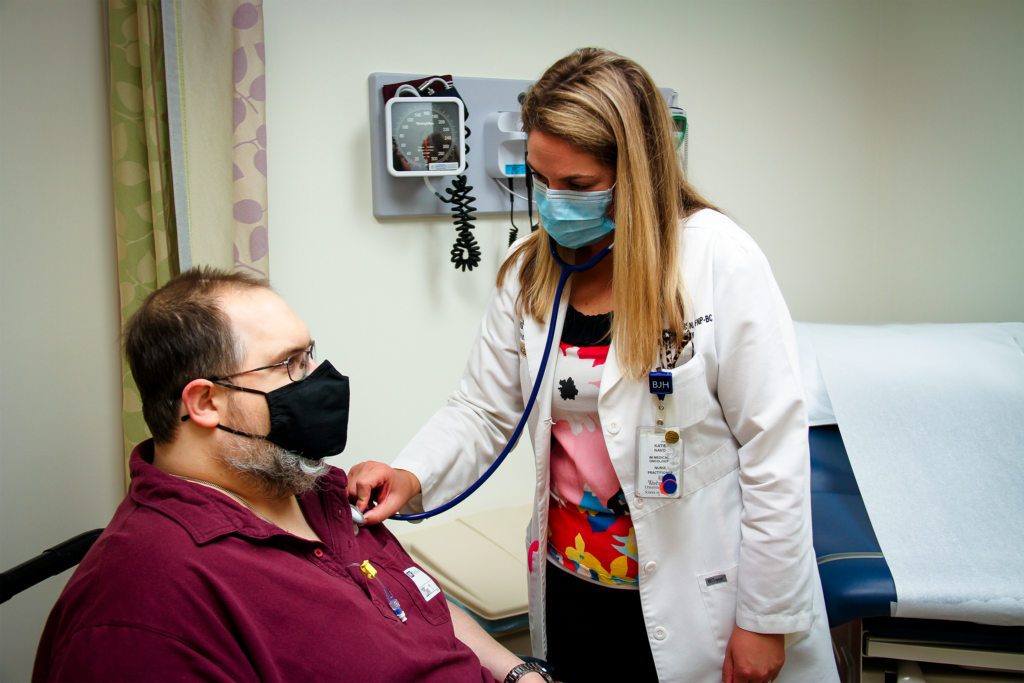Advances in cancer care are happening every day. What’s the best way to find the latest treatment options available for your patients? Check for clinical trials.
While many patients think clinical trials are for those who have exhausted all current standard-of-care (SoC) treatments for their type of cancer, the best time to consider participation in a trial is after the initial diagnosis or when treatment plans need to change.
“In fact, every time a treatment decision is made, a physician should be thinking about clinical trials,” said oncologist Haeseong Park, MD, MPH, director of developmental therapeutics for the Division of Oncology at Siteman Cancer Center and Washington University School of Medicine in St. Louis. “There may be studies that fit one of your patient’s specific cancer at the very beginning of their treatment.”
Early phase clinical trials (Phase 1/2) evaluate the most promising drugs and treatments available. They are equal to or better than SoC therapies and are backed by robust science. Typically, they are used to test dosing levels and efficacy of novel drugs. Because they are early trials, however, they are open to only a limited number of patients and, therefore, can close for enrollment rapidly.
“What’s open today may not be open next week,” Park said. “That’s why we encourage referring physicians to check and see what clinical trials are offered as soon as their patient is diagnosed or is not responding to standard-of-care treatment.”
Siteman Cancer Center offers up to 200 early phase clinical trials at any given time. Criteria for participation varies depending upon type of cancer and its genetic characteristics. Careful coordination and collaboration between referring oncologists, physicians, and Siteman’s clinical trials team is the hallmark of the program.
“We get referrals and questions all the time and we have a multidisciplinary team that reviews each patient’s information to determine if a clinical trial is available,” Park explained. “We look at lab and genetic tests, organ function and medical history. Once a study is identified that would be ideal for the patient, we bring them in for an initial visit and screening tests to further determine eligibility. We can start a patient on an identified clinical trial within two to three weeks of that initial visit and the signing of a consent form.”
She added: “Our goal is to increase awareness that clinical trials are available at the time of diagnosis and these trials can potentially improve patient outcomes beyond standard-of-care treatment options. They are available for patients newly diagnosed, who have failed other treatment options, or who need the most novel treatments for chronic cancer care therapies.”
One patient’s experience
Michael Miller, 50, was diagnosed with esophageal adenocarcinoma in 2016. He first underwent radiation in combination with chemotherapy coupled with leucovorin-fluorouracil-oxaliplatin (FOLFOX). “The cancer kept shrinking and disappearing, so I thought that was great and I was in the clear,” Miller said.
In 2017, however, the cancer metastasized in a surprising location, his left knee. Most patients diagnosed with advanced or metastatic esophageal squamous cell carcinoma who receive standard-of-care therapy do not survive a year after diagnosis.
Miller came to Siteman Cancer Center and was placed on a promising new drug, vopratelimab (JTX-2011), under evaluation in a multicenter, early phase clinical trial (ICONIC study). He has received 70+ cycles of the drug intravenously to date, every three weeks.
“I’m almost four years post-diagnosis and my CT scans have shown zero growth for quite a long time now,” Miller said. “The drug is saving my life, or at the least, prolonging it, which is saying something for a difficult cancer. If we can push medical science forward and help others by participating in a clinical trial, I’m all for it.”
Learn more about clinical trials at Siteman Cancer Center
Siteman Cancer Center offers 500+ therapeutic clinical trials at any given time. Of those, 150 to 200 are considered early phase clinical trials, focused on the latest, most innovative treatment options under evaluation. Learn more by:
- Visiting our website
- Downloading our referring physician app, “Siteman Cancer Center MD,” from the Apple App Store
- Signing up for related communications, or requesting consultations, by emailing us at dom-dtscreening@email.wustl.edu
